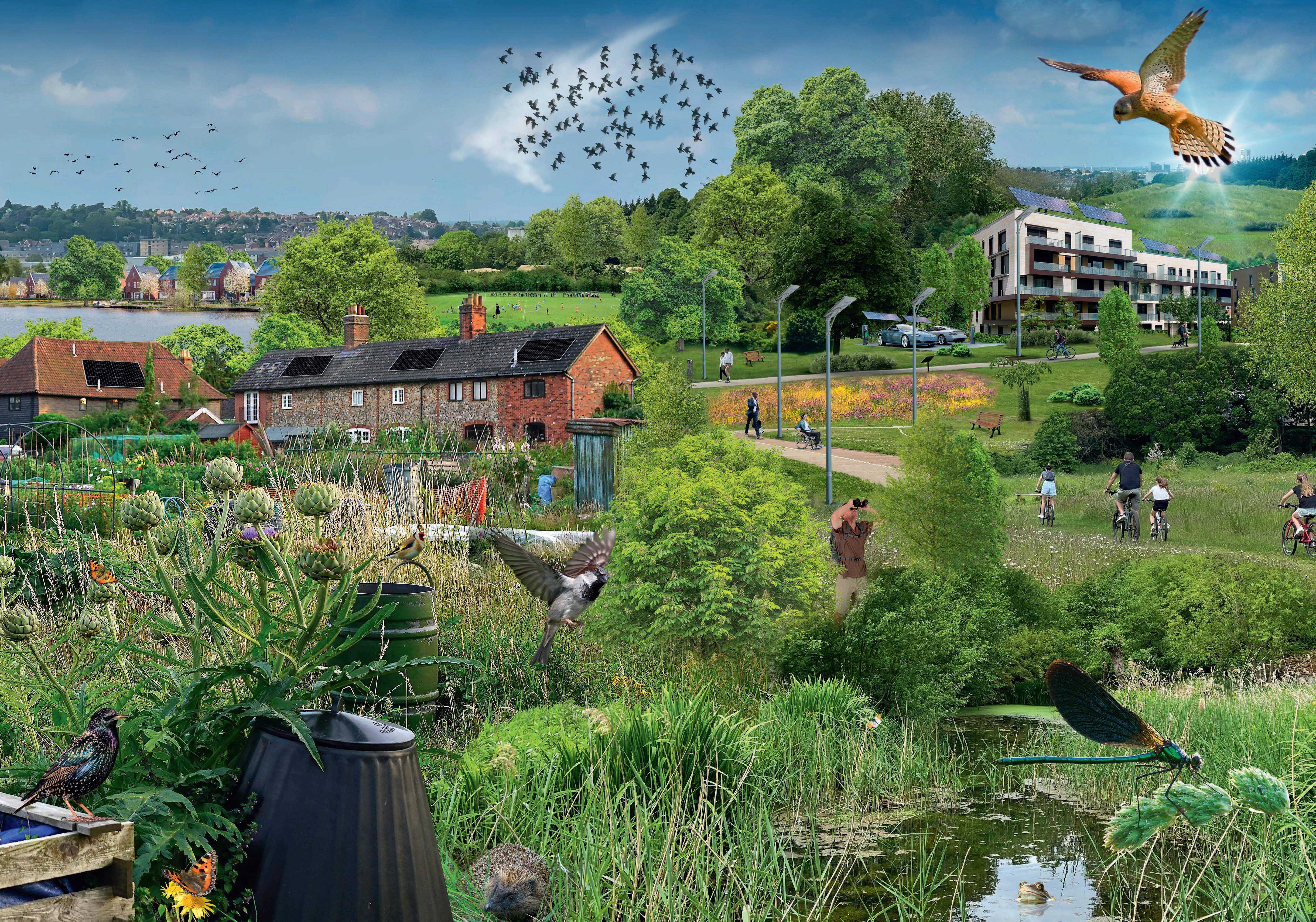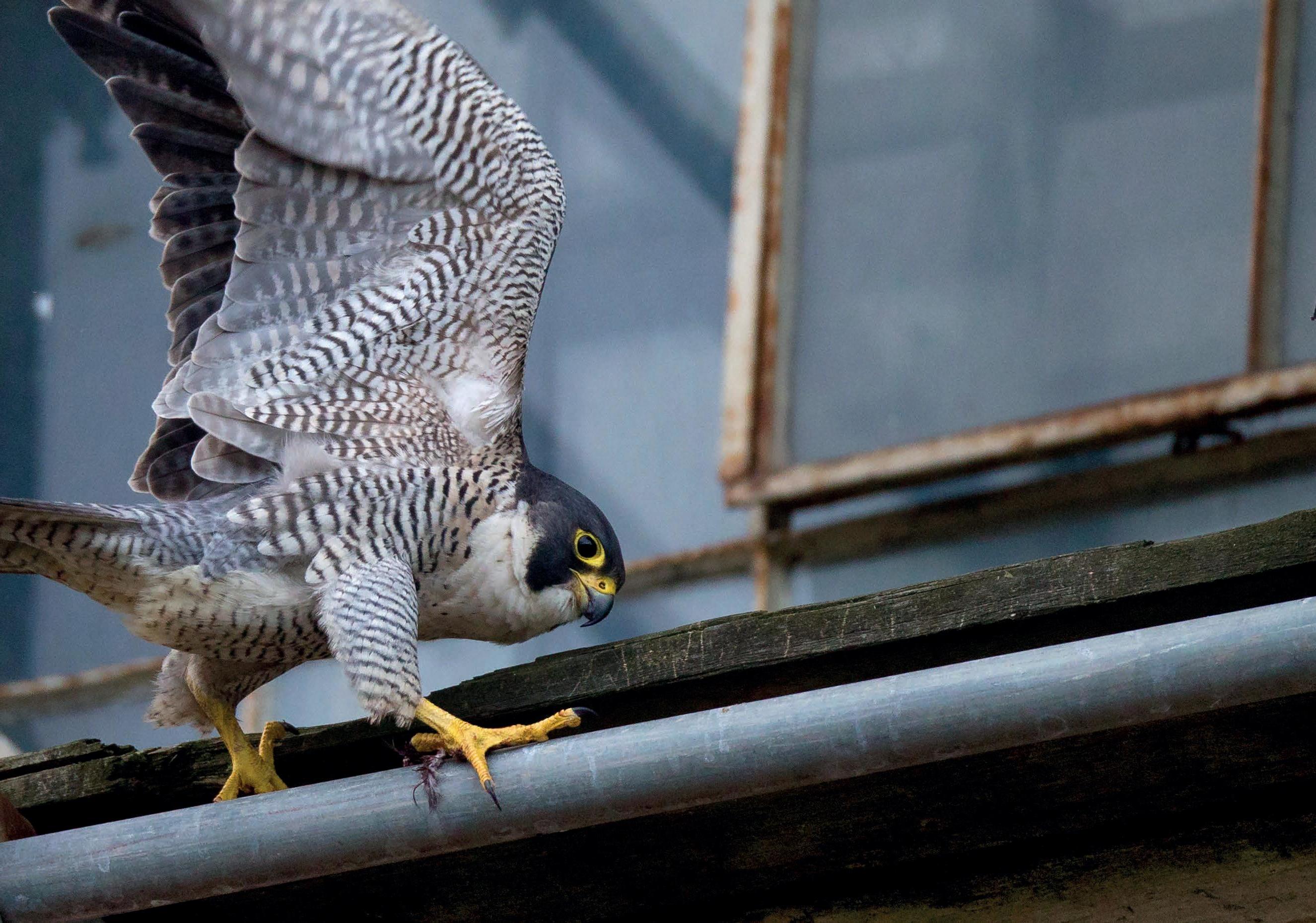
1 minute read
Gardening for wildlife
Bringing nature back
We have a vision of a Wilder Suffolk, where nature in our towns and urban areas is encouraged to thrive and everyone has access to wildlife and green spaces.
Advertisement
WILD GARDENS AND ALLOTMENTS
No food miles, no plastic and great for positive mental health. Allotments and shared green spaces connect people with nature and provide habitats for wildlife.
PEOPLE
Wildlife can be part of everyone’s lives, every day, cherished at home and at work, constantly.
WILD AREAS
Allowing more areas to grow wild will help insects and everything that depends on them, including us!
GREEN ENERGY AND TRANSPORT
Safely commuting on foot and by bike uses peoplepowered, carbon-free energy, making it sustainable.
NATURAL DEFENCES
Wild areas soak up rain water reducing flooding in towns, and mitigate against drought in dry weather.
ABUNDANCE
Once familiar species such as house sparrows and starlings are in decline. We can bring back abundance and diversity by creating more space for nature.
WATER
Clean water in our urban spaces creates homes for insects and attracts a host of other wildlife, too.
Find out more
about our vision for the countryside and for our towns suffolkwildlifetrust.org/ urbanvision

Peregrine falcons are replacing cliff nest sites with buildings, moving into towns like Ipswich.
wildExplore our towns
Suffolk is home to some really wild towns. As we lose more of our countryside to urban sprawl, nature is finding a home right alongside us, in our gardens, parks, churchyards, pavement cracks, street trees and buildings. We’ve spoken to the people living in Suffolk’s towns to find out what makes their urban wildlife special, and learn more about the communities and projects work.
ANNA SALTMARSH
SWT Trustee, botanist and volunteer
JOHN GRANT
Birder & environmental journalist
JOHN THOMPSON
Stowmarket Wildlife Group
LUCY SHEPHERD
SWT Wild Learning Officer in Ipswich
ELLIE ZANTBOER
Bird ringer and naturalist
JIM BURGESS Digiscoping expert and birder



